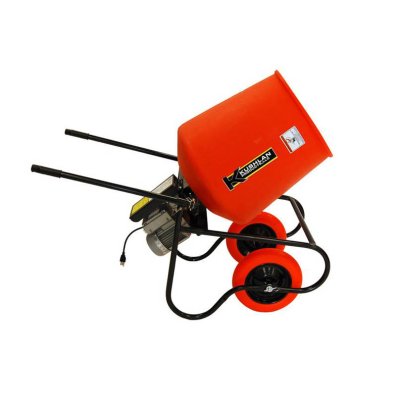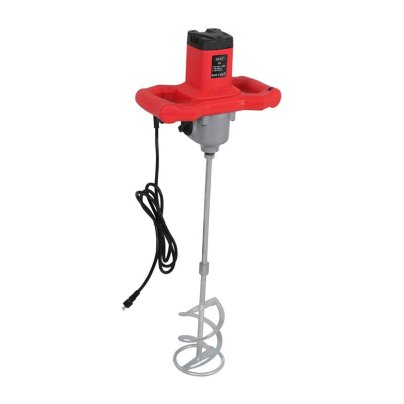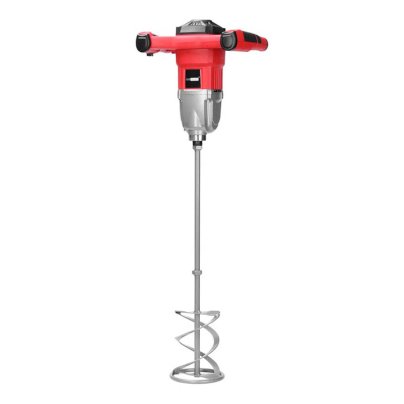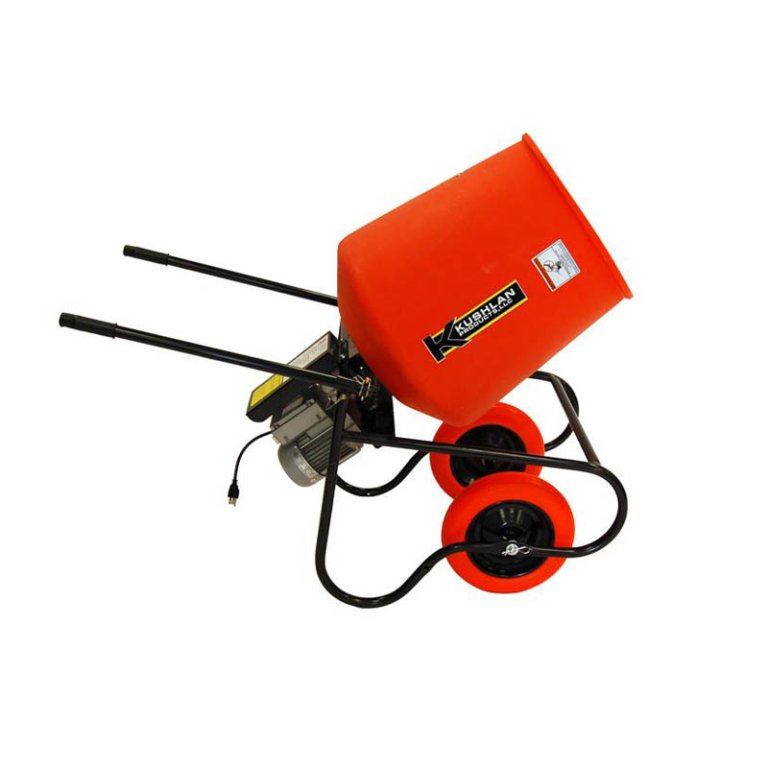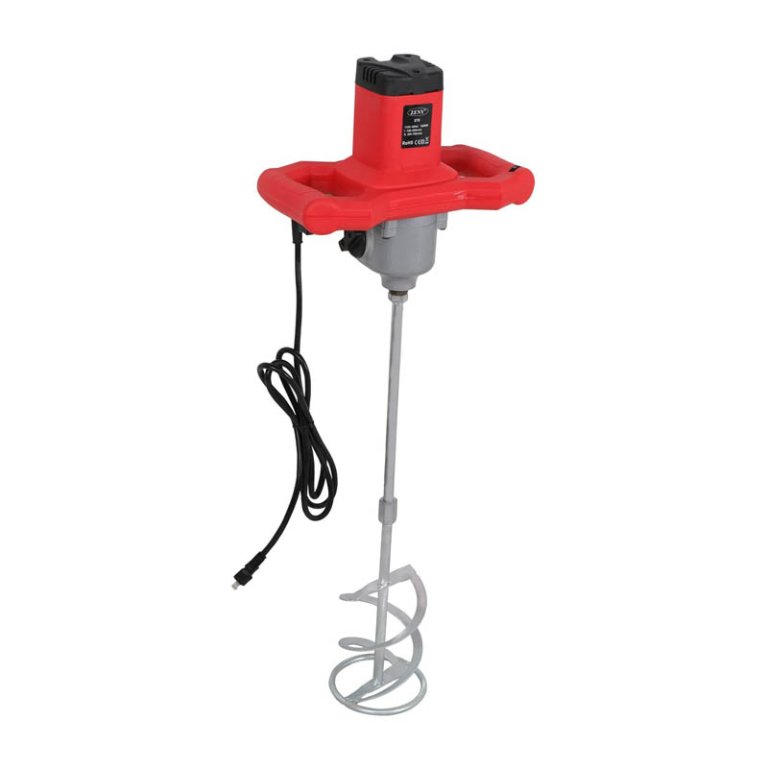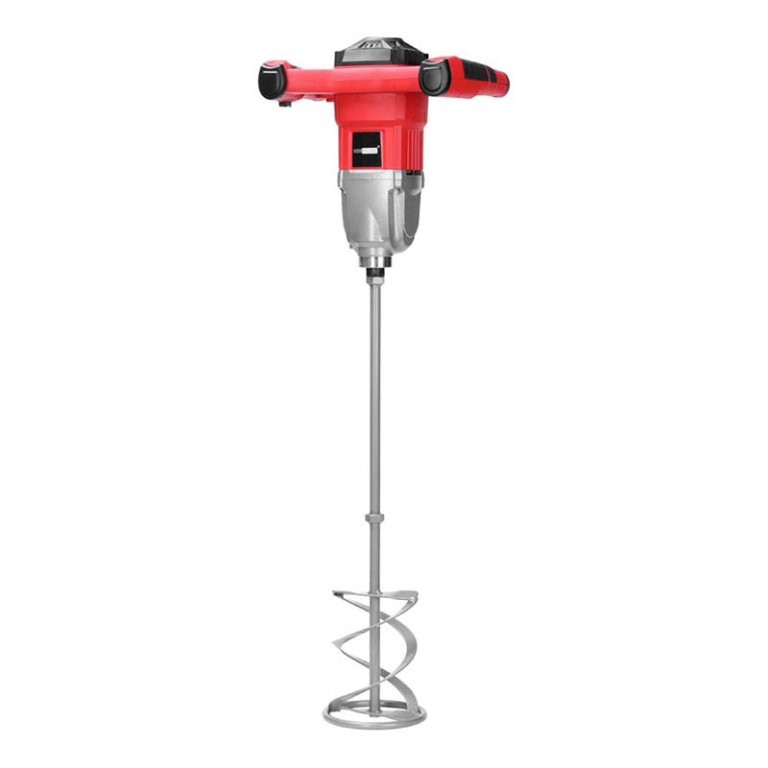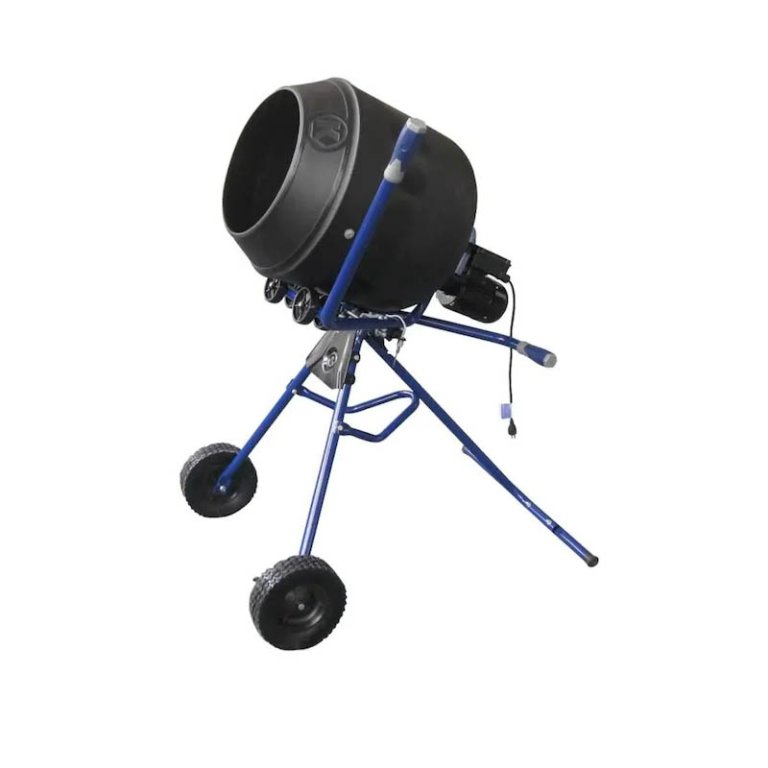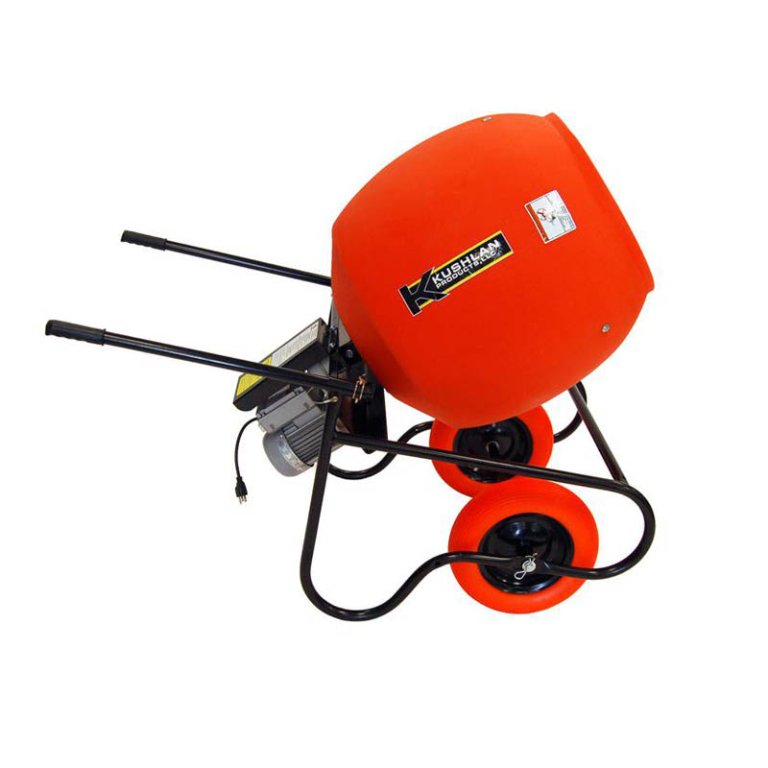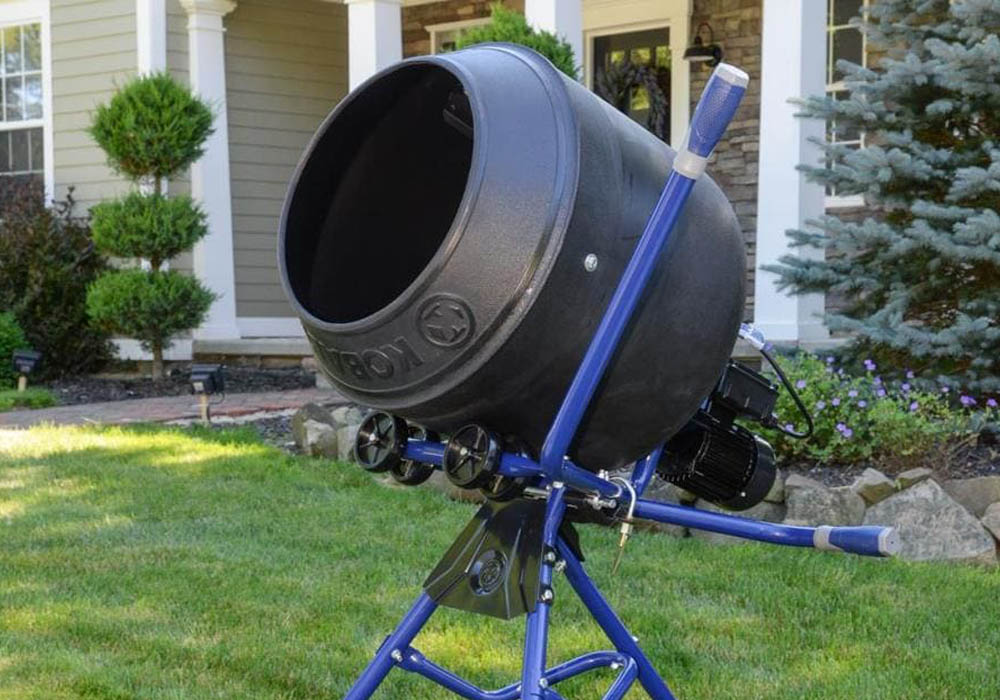
We may earn revenue from the products available on this page and participate in affiliate programs. Learn More ›
There are lots of DIY-friendly projects that require a bit of concrete work. From building decks to erecting a new mailbox, concrete helps to ensure your project stays safe, durable, and securely anchored. But unless you’re using the best cement mixer for your particular project, preparing cement mix can be daunting.
While you could mix concrete with a shovel in a wheelbarrow or mason’s tub, incorporating the water and cement mix can be a tedious, tiring process. Using the best cement mixer can cut that time dramatically while also conserving your energy for the project at hand. This guide will help you understand how to pick a machine that suits your usage—as well as why the following are considered among the best cement mixers on the market.
- BEST OVERALL: Kushlan 3.5 cu. ft. 3/4 HP 120-Volt Cement Mixer
- BEST BUDGET: F2C Pro 1600W Adjustable 7 Speed Cement Mixer
- BEST HANDHELD: VIVOHOME 110V 1600W Electric Handheld Cement Mixer
- BEST LIGHTWEIGHT: Kobalt 4-cu ft 0.5-HP Cement Mixer
- BEST FOR HEAVY USE: Kushlan 6.0 cu. ft. 3/4 HP 120-Volt Cement Mixer
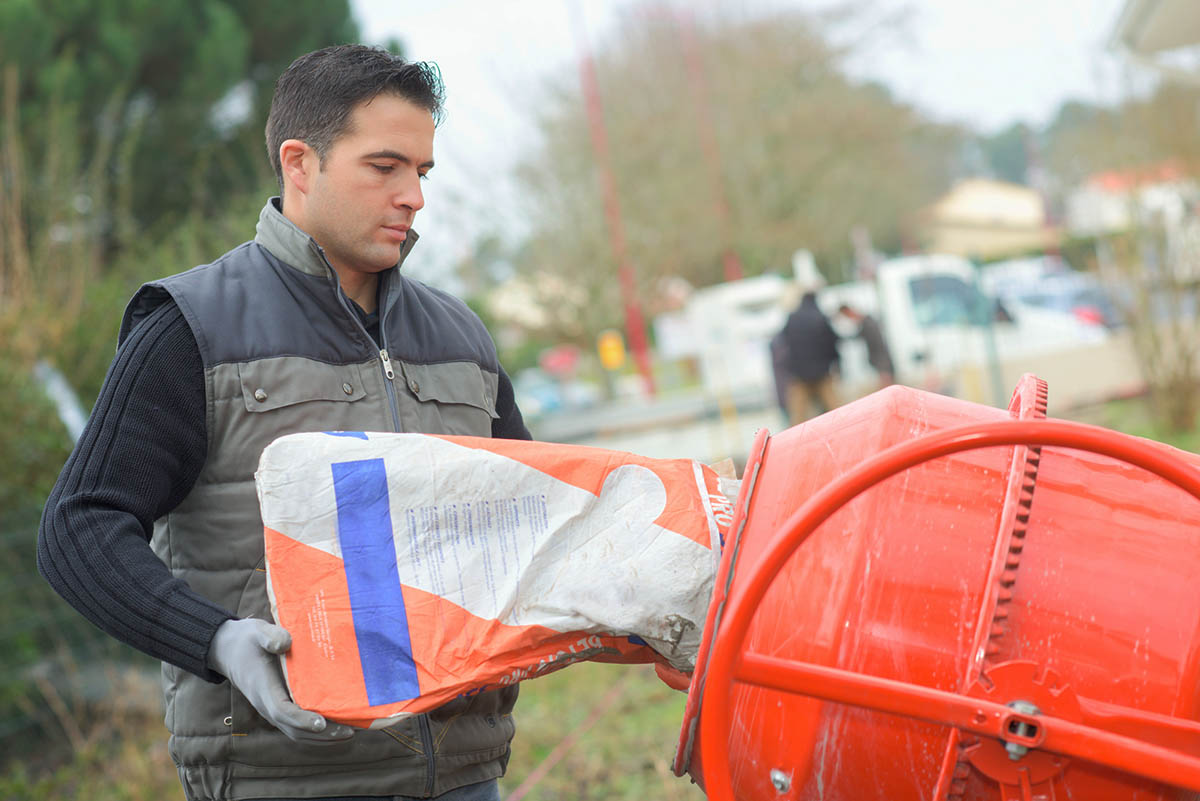
Before You Buy a Cement Mixer
Most folks use the terms “cement” and “concrete” interchangeably, and to some degree, so will this guide. While it’s a common misconception, there is a difference between cement and concrete.
Cement is a binder that sets, hardens, and adheres to other materials, and as such, is a key ingredient in concrete, an aggregate of several different ingredients. Cement comes as a fine powder that hardens via a chemical reaction with the addition of water. In general, the cement referred to in concrete is Portland cement, which is usually derived from limestone.
Concrete is an aggregate made up of water, stone or gravel, and Portland cement; other bonding agents can also be added for repair scenarios. The addition of gravel and stone lessens the amount of Portland cement required, which is often more expensive and less readily available than gravel. Gravel also increases the strength of the cured concrete. And note that mortar, which is used between bricks and blocks to secure them in place, is a mixture of cement, water, and sand (no gravel).
By this definition, there are no cement sidewalks, cement slabs, or cement mixers. Each would actually be concrete, but the terms are so interchangeable that manufacturers use “cement” to describe their mixers.
What to Consider When Choosing the Best Cement Mixer
Choosing the best cement mixer requires a solid foundation of knowledge. You need to know what style, size, and weight machine might work best for your needs, as well as power and capacity, so keep reading to bone up.
Type
Sure, an old-fashioned shovel might work for mixing concrete. But cement mixers can do the job faster and lessen the chances of unmixed cement (which will result in a poor finish and less strength).
Handheld mixers are essentially large, dual-handled, heavy-duty electric drills that accept long mixing paddles. Insert the paddle into a drum filled with concrete mix and water and start mixing. These mixers are ideal for smaller batches or mixing concrete in remote locations that might prohibit a larger mixer.
Barrel mixers have rotating barrels that incorporate water and concrete mix by rotating, which flops the dry mixture into the water. They come in both electric and gas-powered options. For most homeowners and DIYers, an electric mixer is best as it will require very little maintenance, while pros might prefer a heavy-duty gas-powered mixer.
Frequency of Use
How often you plan to use your cement mixer will play a significant part in choosing the best machine, for several reasons.
If you plan to use your cement mixer often, a barrel mixer will be easier on your back. After the task of dumping heavy concrete mix in the barrel, users simply add water and let the machine do the work.
For those mixing concrete infrequently, a handheld mixer might be a better choice. These mixers are much smaller, making them far easier to store away when not in use. Just keep in mind that using a handheld mixer does take effort, albeit less than a shovel and wheelbarrow.
Size and Weight
Barrel mixers are big, and they’re usually pretty heavy. The heft helps stabilize them while the barrel flops the concrete and water together. But lugging one of these machines around, or storing one in a garage, could be an issue.
Lightweight mixers can weigh under 100 pounds, which makes them easy to roll around, and two people can lift one into the bed of a truck. But even lightweight barrel mixers will take up some floor space in a garage.
If giving up that real estate isn’t an option, a handheld cement mixer might be a better choice. They tend to be comparable in weight and size to a heavy-duty handheld drill, and the paddle can be removed and placed on a shelf for storage.
Power
Concrete mix is heavy stuff, so the best cement mixers must have enough power to incorporate the mix and water thoroughly.
Manufacturers tend to quantify the power of handheld cement mixers by the wattage of the motor, with 1,500 watts or more considered ideal. These machines are typically versatile, due to adjustable speeds that make them useful for mixing lighter materials such as thinset, paint, and joint compound.
Barrel mixers move greater volumes of concrete and require more power, and most manufacturers quantify barrel mixer power in horsepower. Look for electric motors with 1/2 to 3/4 horsepower to be sure it has the “oomph” to mix the concrete.
Mixing Volume
Mixing volume applies to barrel mixers only, but this point is crucial: Barrel mixers come in volumes, ranging from just 2.5 cubic feet to 12 cubic feet. While bigger may seem better, that’s often not the case.
Mixing a load of concrete larger than you can work with quickly causes issues. The mix will begin to cure in the mixer, reducing its strength once it cures after pouring. Even if you have a very large mixer, it’s better to work in smaller loads to ensure the mix sets in place, not in the machine. Use this guide to determine how much concrete your project will need.
Additional Features
There are a few other factors that might make a particular barrel-style model the best cement mixer for your needs. Baked-enamel finishes on the drum help improve its durability, while lightweight plastic drums lessen the load. Some machines also have removable or collapsible handles, making them easier to store in a garage or shed.
Adjustable speeds can increase the usability of handheld mixers. While concrete requires a lower speed with lots of torque, paint and thinset can use higher speeds. Also, features like auto shut-offs help reduce the risk of burning mixers up when they get too hot.
Our Top Picks
Now that you understand the criteria for choosing a quality cement mixer, you can start shopping. Whether facing a large project or a quick patch, you’re likely to find the best cement mixer for your needs among the models below.
Best Overall
Kushlan 3.5 cu. ft. 3/4 HP 120-Volt Cement Mixer
Those hunting for a medium-sized barrel cement mixer for a variety of concrete projects should check out Kushlan’s 3/4 Horsepower 120-volt Cement Mixer. This wheelbarrow-handled machine can handle up to 3.5 cubic feet of concrete mix, providing more than enough volume for most such small projects as fence posts and mailbox footings. Its 3/4-horsepower motor rotates the barrel 28 times per minute, so mixing a fresh batch of concrete won’t take long.
This Kushlan is all about durability. It features a 5/16-inch thick, dent- and crack-resistant, rust-proof polyethylene drum. Polyurethane, flat-free tires will hold up to 180 pounds of concrete mix, allowing you to roll a mixed load directly to your job. Yet the machine itself weighs just 75 pounds, and the handles collapse by pulling a pin, making it more compact for storage.
Best Budget
F2C Pro 1600W Adjustable 7 Speed Cement Mixer
Not all concrete projects require a big, expensive cement mixer. For mixing concrete by the bucket, the affordable F2C Pro 1600W Adjustable 7 Speed Cement Mixer can get the job done. This handheld mixer features a 1,600-watt motor with seven adjustable speeds, spinning at rates as high as 700 RPM.
The F2C Pro comes with all of the pieces needed to get mixing, including the motor mixer, the shaft, and a helical blade, plus the tools to clean and maintain the machine. Altogether, it weighs just over 14 pounds—light enough to handle easily but heavy enough to resist the torque produced by the paddle in thick concrete.
Best Handheld
VIVOHOME 110V 1600W Electric Handheld Cement Mixer
Whether it’s concrete, mortar, thinset, or paint, VIVOHOME’s 110V 1600W Electric Handheld Cement Mixer can handle it. This handheld cement mixer features a two-speed gearbox that increases torque for thick concrete or speed for thinner materials. It also offers multi-position speed control.
Beyond the adjustable output, the VIVOHOME features an efficient cooling system that draws cool air through the top of the machine and pushes hot air out below. It also features an automatic shut-off should the machine overheat after heavy use. It comes with the mixer, the mixing shaft, a paddle, and the tools required to maintain and clean the machine.
Best Lightweight
Kobalt 4-cu ft 0.5-HP Cement Mixer
When storage, portability, and capability are all factors, Kobalt’s 4-cubic feet 1/2-horsepower Cement Mixer might be the model to go with. This barrel-style cement mixer features a 0.5-horsepower electric motor that spins the drum at 24 revolutions per minute. The drum’s 4-cubic feet capacity can handle up to 235 pounds of concrete mix, while the entire machine weighs just 83 pounds.
This cement mixer features a durable rotomolded plastic drum, dashing concerns about rust while still being easy to clean. It also features a dump handle for pouring concrete mix without tipping over the entire machine. The wheels are 10 inches in diameter, so they can traverse uneven surfaces relatively easily.
Best for Heavy Use
Kushlan 6.0 cu. ft. 3/4 HP 120-Volt Cement Mixer
A dry bag of concrete mix is heavy by itself; add some water, and the weight can be backbreaking. That’s of no concern for Kushlan’s 6.0 Cubic Feet, 3/4-Horsepower Cement Mixer. This barrel-style mixer can hold up to 300 pounds of mixed concrete, rolling across the site with its 14-inch flat-free tires and wheelbarrow-style handles.
The Kushlan features a 5/16-inch polyethylene drum that won’t crack, dent, or rust, adding to its durability for heavy use. Between the steel frame, 115V motor, and wheels, the entire unit weighs 107 pounds, which is more than reasonable for a mixer this robust. The handles also remove with two pins, making the unit easy to store away.
FAQs About Your New Cement Mixer
For more helpful info about the purchasing and using the best cement mixers, check out the answers to the following frequently asked questions.
Q. What are the different types of concrete mixers?
There are two main types: handheld and barrel-style. Handheld cement mixers are best for mixing concrete in a bucket. Barrel-mixers are best for projects requiring larger volumes of concrete.
Q. What size cement mixer should I buy?
It’s easy to fall into a “more-is-more” mindset, but that’s not always the case with cement mixers. A mixer in the 3.5 to 4 cubic foot range will be more than enough for most small projects, like anchoring a mailbox or fence post in the ground, or even deck footings.
Q. How do you keep concrete from sticking to a mixer?
It’s best to start with a wet drum, so give the interior a quick spray with the hose before you start. Start mixing with a wet slurry, adding more concrete mix as needed. This guide on How To Mix Concrete will help.
Q. How long should concrete mix in a mixer?
Mix concrete for between 3 and 5 minutes. At that point, the concrete should resemble thick oatmeal and hold its shape.
